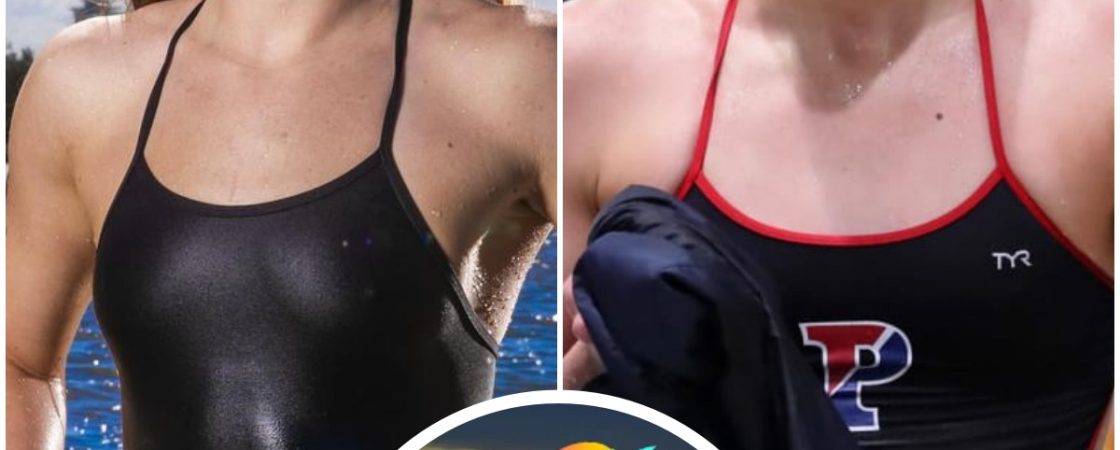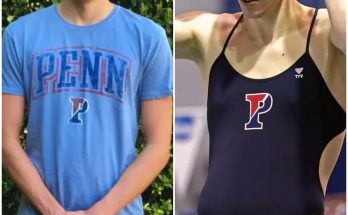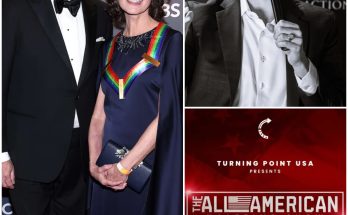ENOUGH IS ENOUGH — Michael Phelps Stuns the World by Backing Mollie O’Callaghan in Lia Thomas Firestorm, Demands Protection of Women’s Sports: “This isn’t hate — it’s about fairness!”
In the world of sports, few statements carry the weight of Michael Phelps’s words. The most decorated Olympian in history—winner of 23 gold medals and a living symbol of athletic excellence—has spent decades setting the bar for what it means to compete, to win, and to inspire. But this week, Phelps did something that stunned not just the swimming community, but the entire global sports world: he stepped into the center of the Lia Thomas firestorm, backing Mollie O’Callaghan’s call to protect women’s sports and demanding a renewed focus on fairness ahead of the 2028 Olympic Games.
It was not a lengthy speech. In fact, Phelps’s televised statement was just 27 words long. Yet its impact was seismic, igniting a global reckoning and triggering an emergency meeting within World Aquatics as federations, athletes, and fans scrambled to respond. With the clock ticking toward Los Angeles 2028, Phelps’s intervention marks a defining moment in the debate over transgender athlete eligibility—a moment that could shape the future of women’s sports for years to come.
The Spark: A Statement Heard Around the World
The controversy over Lia Thomas’s Olympic eligibility has been building for months, fueled by passionate arguments on both sides. Thomas, a transgender swimmer who made history in the NCAA women’s division, has become the focal point of a debate about identity, inclusion, and competitive equity. Mollie O’Callaghan, a rising star and outspoken advocate for cisgender women in sports, has emerged as Thomas’s most visible critic, arguing that current rules do not adequately protect the integrity of female competition.
But until now, the debate had remained largely within the realm of athletes, advocacy groups, and sports policy experts. That changed the moment Michael Phelps spoke.
“This isn’t hate—it’s about fairness,” Phelps said, his voice clear and unwavering. “We must safeguard competition integrity and elevate the dialogue beyond outrage.”
With those words, Phelps did more than endorse O’Callaghan’s position. He set a new standard for the conversation, challenging the sports world to move past polarization and grapple with the complex realities of fairness, inclusion, and identity.
A Firestorm Decades in the Making
To understand the significance of Phelps’s intervention, it’s important to trace the roots of the debate. The question of transgender athlete eligibility is not new. For decades, sports organizations have struggled to balance the principles of inclusion and competitive equity, developing policies that attempt to level the playing field while respecting athletes’ identities.
The International Olympic Committee (IOC), for instance, currently requires transgender women to maintain testosterone levels below a certain threshold for at least 12 months prior to competition. Critics argue that these guidelines are both arbitrary and insufficient, pointing to emerging research on physiological advantages that may persist after transition. Supporters counter that the science is still evolving, and that blanket bans risk excluding athletes who have worked tirelessly to meet every requirement.
Lia Thomas’s rise to prominence brought these tensions to a boiling point. Her record-breaking performances in the NCAA women’s division sparked protests, policy reviews, and fierce debates about the future of women’s sports. For Thomas and her supporters, the issue is one of justice and representation—a fight for the right to compete and be recognized as an equal. For O’Callaghan and her allies, it’s a battle to preserve the integrity of competition and ensure that cisgender women are not disadvantaged by policy loopholes.
The Power of Phelps: Why His Words Matter
Michael Phelps is not just another athlete. He is a global icon, a figure whose achievements have defined the Olympic movement for a generation. His endorsement carries a level of authority and credibility that few others can match. When Phelps speaks, the world listens.
In backing Mollie O’Callaghan, Phelps has done more than lend his support to a fellow swimmer. He has reframed the debate, urging sports federations, athletes, and fans to move beyond outrage and engage in a meaningful dialogue about fairness. His message is clear: protecting women’s sports is not about hate or exclusion; it’s about upholding the principles that make competition meaningful.
Phelps’s intervention also places new pressure on sports governing bodies. World Aquatics, the organization responsible for overseeing international swimming, responded to his statement by convening an emergency meeting to review its policies. The IOC, already under scrutiny for its stance on transgender athletes, now faces renewed calls to clarify its position ahead of the 2028 Games.
The Science and the Policy: Where Do We Draw the Line?
At the heart of the debate lie difficult scientific and ethical questions. Can hormone therapy truly level the playing field? Do physiological differences persist after transition? How do we balance the need for fair competition with the imperative of inclusion?
Research on the topic is complex and evolving. Some studies suggest that transgender women who undergo hormone therapy experience significant reductions in muscle mass and strength, bringing their performance closer to cisgender female norms. Others argue that certain advantages—such as bone density and cardiovascular capacity—may persist, potentially impacting competition outcomes.
The IOC’s guidelines represent an attempt to navigate these complexities, but critics argue that the rules are both too rigid and too vague. Advocacy groups warn that overly restrictive policies risk excluding transgender athletes from the highest levels of sport, while opponents insist that inclusion must not come at the expense of fairness.
For Phelps, the answer is not simple. His statement calls for a dialogue that acknowledges the complexity of the issue, recognizes the lived experiences of all athletes, and seeks solutions that uphold the integrity of competition.
The Human Cost: Voices from the Frontlines
As the controversy rages, athletes from around the world are sharing their perspectives. Some describe the challenges of competing against transgender opponents—moments of frustration, but also opportunities for growth and understanding. Others recount the isolation and stigma faced by transgender athletes, the constant need to prove themselves, and the fear of being erased from the record books.
“I’ve raced against Lia,” said one swimmer, who asked to remain anonymous. “She’s tough, no doubt. But more than anything, she’s just another competitor—someone who trains hard, who wants to win, who loves the sport. That’s what matters to me.”
Another athlete, a former Olympian, offered a different view. “The Olympics are supposed to be the highest level of fair competition. If we start blurring the lines, we risk losing what makes women’s sports special. It’s not about hate—it’s about preserving something important.”
These voices reflect the complexity of the debate, the diversity of opinion, and the deep emotions at stake. For every story of inclusion, there is a story of exclusion. For every plea for fairness, there is a plea for justice.
Mollie O’Callaghan: The Reluctant Lightning Rod
If Lia Thomas is the face of the fight for inclusion, Mollie O’Callaghan has become the reluctant lightning rod for those demanding greater protection for cisgender women in sport. O’Callaghan’s rise to prominence was fueled not by controversy, but by achievement. A world champion and Olympic medalist, she has spent years honing her craft, pushing the boundaries of what is possible in the pool.
But as the Thomas controversy grew, O’Callaghan found herself at the center of a movement. Her outspoken stance—calling for stricter eligibility rules and greater transparency from sports federations—has galvanized athletes and fans who feel that their voices have been ignored.
For O’Callaghan, the issue is deeply personal. “I want every athlete to have a fair chance,” she said in a recent interview. “But fairness means making sure the rules protect everyone. That’s not hate—it’s just common sense.”
Her words, echoed by Phelps, have become a rallying cry for those who believe that the future of women’s sports is at stake.
The Role of Media: Shaping the Narrative
Media coverage has played a crucial role in shaping the Lia Thomas–Mollie O’Callaghan controversy. Headlines have alternated between sympathetic profiles and harsh critiques, often amplifying the most extreme voices. Social media, in particular, has transformed the debate into a battleground, where nuance is often lost amid the noise.
Advocacy groups have seized the moment, launching campaigns to support Thomas and other transgender athletes. Petitions, open letters, and video tributes have flooded the internet, while opponents have organized rallies and lobbied policymakers.
Through it all, Phelps’s voice has remained central—a reminder that behind every controversy is a person, a story, a dream.
Emergency Meetings and Policy Overhauls: The Pressure on Sports Federations
The immediate impact of Phelps’s statement was felt within hours. World Aquatics, the governing body for international swimming, announced an emergency meeting to review its eligibility policies. The IOC, already facing pressure from athletes and advocacy groups, is now under intense scrutiny as it prepares for the 2028 Games in Los Angeles.
Federations across disciplines are watching closely, aware that the outcome of this debate could set a precedent for all Olympic sports. Some have already begun revising their guidelines, seeking input from scientists, ethicists, and athletes in an effort to craft policies that balance inclusion and fairness.
For many, the stakes could not be higher. The decisions made in the coming months will shape the landscape of women’s sports for a generation, determining who gets to compete, who is recognized, and what it means to be an athlete at the highest level.
The Global Response: Shockwaves and Aftershocks
Within hours of Phelps’s statement, the sports world was in upheaval. Supporters hailed his courage, sharing messages of solidarity and recounting their own struggles for acceptance and equality. Critics doubled down, insisting that allowing Thomas to compete would undermine the integrity of women’s sports.
News outlets dissected Phelps’s words, analyzing every sentence for clues about his next move and the potential impact on Olympic policy. Social media exploded with debate, as hashtags like #ProtectWomensSports and #LetLiaSwim vied for dominance.
Athletes across disciplines weighed in. Some shared stories of competing against transgender opponents, describing both challenges and moments of mutual respect. Others insisted that the issue was not personal, but structural—a question of rules, not individuals.
Sports governing bodies, meanwhile, found themselves under renewed pressure. The IOC, which has struggled for years to develop guidelines that balance inclusion with competitive integrity, was flooded with calls to clarify its position. Would the IOC stand firm on its current policies, or would Phelps’s statement force a new reckoning?
The Broader Implications: Identity, Fairness, and the Future of Sports
The Lia Thomas–Mollie O’Callaghan–Michael Phelps controversy is about more than swimming or the Olympics. It is a microcosm of a larger struggle—one that touches on questions of identity, fairness, and the evolving nature of sports in a changing world.
For O’Callaghan and her supporters, the issue is existential. They argue that the integrity of women’s sports depends on clear boundaries, and that allowing transgender women to compete risks erasing hard-won gains for female athletes. They point to physiological differences, competitive advantages, and the need to protect the spirit of fair play.
For Thomas and her allies, the issue is one of justice. They insist that exclusion is itself a form of discrimination, one that denies transgender women the chance to pursue their dreams and contribute to the rich tapestry of athletic achievement. They argue that sports should be a place of possibility, not exclusion—a stage where diversity is celebrated, not feared.
The debate is not just academic. It has real-world consequences for athletes, coaches, policymakers, and fans. It shapes the rules that govern competition, the culture of locker rooms and training facilities, and the narratives that define sporting excellence.
What’s Next: The Road to the 2028 Olympics
As the world looks ahead to the 2028 Olympics, the road is uncertain. The policies may change, the debate may evolve, but one thing is clear: the silence is over. Michael Phelps has fired back, and in doing so, he has shattered the boundaries of the conversation.
Sports governing bodies are under renewed pressure to clarify their policies, to articulate what fairness means in an era of evolving gender norms. Lawmakers are weighing in, proposing new legislation and convening hearings. The media is digging deeper, exploring the science, the stories, and the stakes.
For Thomas, O’Callaghan, and countless other athletes, the fight continues. They remain focused on their training, determined to earn their place not just at the Olympics, but in the history of sport. Phelps’s statement has already inspired a new wave of activism, as athletes and advocates rally around the cause of inclusion and fairness.
But the controversy is far from settled. Critics argue that allowing Thomas to compete sets a dangerous precedent, one that could undermine the integrity of women’s sports. Supporters insist that exclusion is itself a form of injustice, one that denies transgender women the chance to pursue their dreams.
Final Thoughts: A Defining Flashpoint for a Generation
In the end, the Michael Phelps–Mollie O’Callaghan–Lia Thomas controversy is about more than swimming, more than the Olympics, more than policy. It is a story about who we are, what we value, and how we choose to define fairness in a changing world.
Phelps’s voice, once reserved for the pursuit of gold, is now at the center of a global reckoning—a voice demanding to be heard, a voice refusing to fade.
“I know this debate is difficult,” Phelps said. “I know there are no easy answers. But I also know that progress has never come from silence. It comes from speaking up, from challenging assumptions, from refusing to be erased.”
As the world grapples with the implications of his words, one thing is certain: the debate over Olympic eligibility, fairness, and inclusion is far from over. The aftershocks will continue to shape sports, policy, and culture for years to come.
Whether you agree with Phelps, O’Callaghan, or Thomas, whether you support inclusion or advocate for stricter rules, the conversation matters. It is a reckoning—a moment when the world must decide what kind of stage the Olympics will be, and who will be allowed to stand upon it.
The silence is over. The world is listening.



